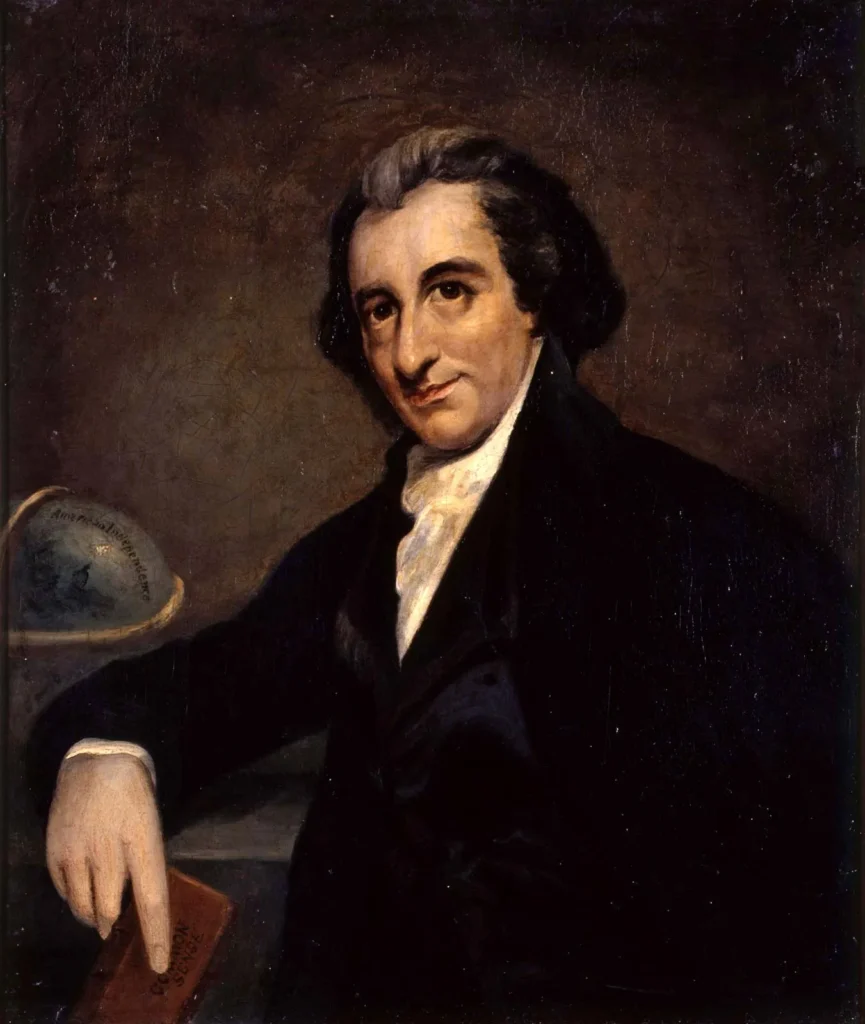Thomas Paine, born on January 29, 1737, was a man of extraordinary ideas and words that sparked revolutions and changed the course of history. His writings, including “Common Sense” and “The Rights of Man,” ignited the flames of liberty during the American and French Revolutions. Paine’s life journey is a testament to the power of one individual to inspire change through the written word.
Early Life and Influences (1737-1774)
Thomas Paine was born in Thetford, England, to humble beginnings. His father was Joseph Paine, a corset maker, and his mother was Frances Cocke Paine, a stay-maker, provided him with a modest upbringing. Despite limited formal education, Paine’s curiosity and thirst for knowledge led him to become an apprentice to his father.
Journey to America (1774-1776)
In 1774, at the age of 37, Paine embarked on a journey that would alter the course of his life and the destiny of nations. He sailed to America, seeking a fresh start and a new beginning. Little did he know that he would play a pivotal role in shaping the future of the American colonies.
Common Sense: A Revolutionary Pamphlet (1776)
In January 1776, Thomas Paine published “Common Sense,” a pamphlet that would galvanize the American colonists towards independence from British rule. Written in simple and persuasive language, “Common Sense” argued for the natural right of self-governance and urged colonists to break free from the tyranny of the British monarchy.
The American Revolution and Paine’s Contributions (1776-1783)
Paine’s words resonated deeply with the American people, fuelling the flames of revolution. He served as a soldier in the Continental Army and continued to inspire with his pen, writing influential essays such as “The Crisis” series, which bolstered morale during the darkest days of the Revolutionary War.
The Rights of Man: A Manifesto for Freedom (1791)
Following the success of the American Revolution, Thomas Paine turned his attention to the plight of the common people in Europe. In 1791, he published “The Rights of Man,” a passionate defense of the principles of liberty, equality, and fraternity. This ground-breaking work challenged the oppressive systems of monarchy and aristocracy, advocating for democratic governance and social justice.
Impact on the French Revolution (1789-1799)
Paine’s ideas found a receptive audience in France, where the flames of revolution were burning bright. His writings, translated into French, became rallying cries for the French revolutionaries, who sought to overthrow the absolutist monarchy and establish a republic based on the principles of liberty and equality.
Controversy and Exile (1792-1802)
Despite his contributions to the cause of liberty, Thomas Paine found himself embroiled in controversy. His vocal support for the French Revolution and criticism of established institutions led to accusations of treason in Britain. Forced to flee to France, Paine narrowly escaped the guillotine during the Reign of Terror.
Legacy and Enduring Influence
Thomas Paine’s legacy is etched in the annals of history as a champion of liberty and human rights. His words continue to inspire generations of activists, intellectuals, and ordinary citizens striving for a more just and equitable world. From the American Revolution to the French Revolution, Paine’s ideas have transcended borders and endure as beacons of hope in the ongoing struggle for freedom and democracy.
Conclusion
In the tapestry of history, Thomas Paine stands as a towering figure whose words ignited revolutions and stirred the souls of millions. His belief in the inherent dignity and rights of all individuals continues to resonate in our modern world. As we reflect on his life and contributions, let us remember the power of one person to spark change and uphold the principles of liberty, equality, and justice for all.
